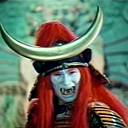In reading about Fellini’s 8 ½ I was surprised by the number of critics and reviewers who focused on the film as a depiction of what it is like to be an artist and/or director. The consensus seems to be that 8 ½ is about all of the trials and suffering that artists go through in pursuit of their art. Roger Ebert says in his summary and review, ”8 1/2 is the best film ever made about filmmaking.” I don’t see this at all. While I agree about the exceptional quality of the film, its primary concern is with the disintegration of a man’s psyche. The fact that he is making a movie is a metaphor for his desire to control the conditions and people in his life. The film is not designed to be a depiction of an artist at work. 8 ½ is about pathology.
Guido is a pathological narcissist, perhaps even to the point of psychosis. This is not an academic exercise in psychoanalysis. It is abundantly apparent that Fellini intended Guido to be seen this way. Yes, 8 ½ is partly a self-portrait and yes as a movie it is reflexive in its ingenious cycle of self-references, but it is clear that we are not depicting a sympathetic character struggling for his art. An autobiography does not preclude contempt for the protagonist.
In the last significant dialogue in the film, Guido looks longingly into his wife Luisa’s eyes and says. “Accept me for what I am, if you can. It’s the only way we might find each other.” It’s a demented request for a completely one-sided relationship where Guido is given full freedom and indulgence and Luisa must unconditionally defer to his needs. Accepting him as he is would be to debase herself by accepting his constant lying, cheating, and childish behavior.
Earlier in the film, Guido asks for something similar. He proclaims while basking in the arms of his many women, “Happiness is being able to tell the truth without hurting anyone.” Again this is a ludicrous request for complete freedom without having to pay any consequences. Not only does want to say whatever he feels like saying and have it accepted as truth, but no one is allowed to reproach him for it.
The whole idea that Fellini was lost and stumbled through this film is overplayed. I am sure there is an element of truth to it, the actors and crew were famously frustrated by him but the perfectly timed long shots that sweep through different characters and conversations don’t just happen. In this respect, Ebert and I agree “He [Fellini] claims he doesn’t know what he wants or how to achieve it, and the film proves he knows exactly and rejoices in his knowledge.” 8½ is deliberate, masterful, and intentional, but its intention is not to reveal the machinations of a director it is a depiction of a descent into madness.
The different realities of the film are all seen through Guido’s eyes, but as a narcissist, he doesn’t truly see anyone, only what he can get from them, or what they want from him. He doesn’t communicate with anyone in the film. He wants them all to fawn over him with flattery and affection and not bother him with their own lives’ perspective and needs. Guido demands to be the ruler of a world made for him and can not tolerate anyone drawing attention away from his spotlight. This becomes a literal image at the end of the film. When he appears as a child in a spotlight.
All of this depravity is right on the surface of the film. It takes no interpretation or analysis to see it. The man wields a whip in his own harem. He depicts himself as a ringmaster in the circus of his life with everyone dancing to his tune, to his direction in a circle around him. Guido does a miserable job as a director, a husband, a friend, or anything else. Fellini on the other hand successfully parodies his own excesses and provides deep insight into an expertly developed character and situation.
